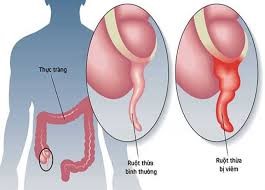A client has a new prescription for zolpidem, a hypnotic. The client tells the home health nurse that he plans to take a dose of the medication during the day because he is exhausted and needs to take a short afternoon nap prior to an evening activity in his home. Which action should the nurse take?
Remind the client to drink plenty of fluids when taking the medication.
Encourage the client to wait until bedtime to take the medication.
Advise the client to take the medication with the noon meal.
Explain that the client needs to allow for sleep time of at least two hours.
The Correct Answer is B
A. Remind the client to drink plenty of fluids when taking the medication:
Drinking fluids with zolpidem is not a primary concern in this situation. The main issue is the timing of the medication.
When a client with a new prescription for zolpidem, a hypnotic, plans to take a dose of the medication during the day for a short afternoon nap, the nurse should take the following action:
B. Encourage the client to wait until bedtime to take the medication.
Explanation: Zolpidem is a medication primarily prescribed to help individuals with insomnia fall asleep more easily when taken at bedtime. Taking it during the day, especially for a short nap, can lead to drowsiness, impaired coordination, and reduced alertness during activities. It is not intended for daytime use or for short naps during the day. The nurse should encourage the client to take the medication as prescribed, at bedtime, to ensure safe and effective use.
C. Advise the client to take the medication with the noon meal:
Zolpidem is not typically taken with meals. Again, the primary concern is the timing of the medication.
D. Explain that the client needs to allow for sleep time of at least two hours:
While it's important to allow for sufficient sleep time after taking zolpidem to minimize the risk of impaired alertness and coordination, the client should be encouraged to take the medication at bedtime rather than during the day to ensure it works as intended.
Nursing Test Bank
Naxlex Comprehensive Predictor Exams
Related Questions
Correct Answer is ["A","C","D","E","F"]
Explanation
Options A, C, D, E, and F may affect insulin requirements and should be considered in the client's care plan.
The home medications that may affect the amount of insulin needed by the client are:
A. Corticosteroids: Corticosteroids can increase blood glucose levels, which may require an adjustment in insulin dosage.
C. Oral contraceptives: Some oral contraceptives may affect insulin sensitivity, potentially requiring adjustments in insulin dosage.
D. St. John's Wort: St. John's Wort can impact the metabolism of insulin and may lead to fluctuations in blood glucose levels, necessitating adjustments in insulin dosing.
E. Fluconazole: Fluconazole may affect blood glucose levels and may require monitoring and potential adjustments in insulin dosing.
F. Epinephrine: Epinephrine can lead to increases in blood glucose levels, and insulin dosage may need to be adjusted.
B. Ibuprofen: Ibuprofen is not typically associated with significant effects on insulin or blood glucose levels.

Correct Answer is {"A":{"answers":"B"},"B":{"answers":"A"},"C":{"answers":"B"},"D":{"answers":"B"},"E":{"answers":"A"}}
Explanation
Instructions Given:
- Limit fluids for several days before the first dose.
Contraindicated: Limiting fluids before taking captopril is not indicated and could lead to dehydration, which may exacerbate the risk of hypotension.
- Monitor blood pressure for several hours after the first dose.
Indicated: Monitoring blood pressure after the first dose of captopril is essential to detect and manage potential first-dose hypotension.
- Increase the Lantus dose by 3 units the morning of the first dose.
Contraindicated: Increasing the dose of Lantus (insulin glargine) on the morning of the first dose of captopril is not appropriate and may lead to hypoglycemia. Adjustments to diabetes medications should be made under the guidance of a healthcare provider.
- Hold spironolactone for 3 days.
Contraindicated: Stopping spironolactone abruptly is not recommended without proper medical guidance, as it may lead to electrolyte imbalances and other adverse effects.
- Lay down if the blood pressure drops quickly after the first dose.
Indicated: If the blood pressure drops significantly after taking the first dose of captopril, it may be advisable for the client to lie down to prevent falls and injuries.
Whether you are a student looking to ace your exams or a practicing nurse seeking to enhance your expertise , our nursing education contents will empower you with the confidence and competence to make a difference in the lives of patients and become a respected leader in the healthcare field.
Visit Naxlex, invest in your future and unlock endless possibilities with our unparalleled nursing education contents today
Report Wrong Answer on the Current Question
Do you disagree with the answer? If yes, what is your expected answer? Explain.
Kindly be descriptive with the issue you are facing.
